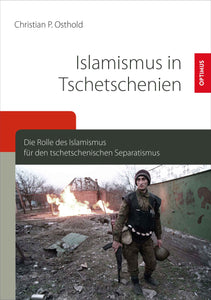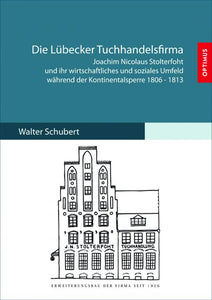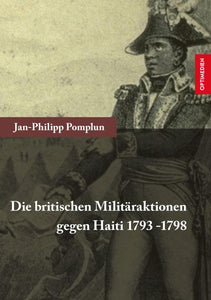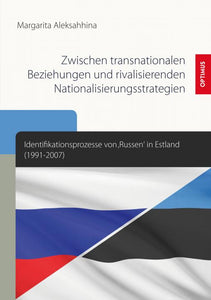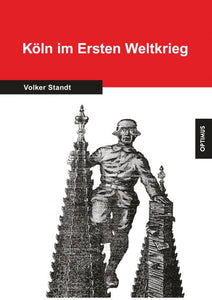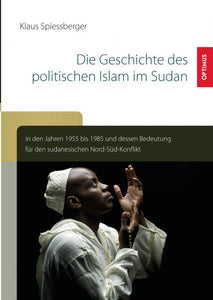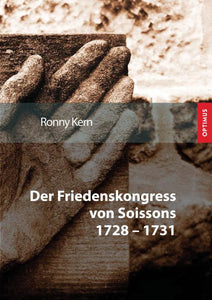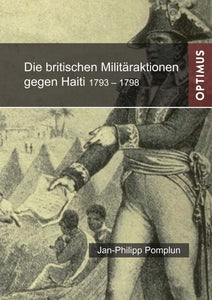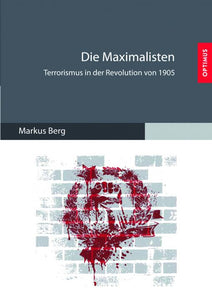
historical science
Especially in Germany, where the conversation about terror and Islamist extremism is part of everyday media life, well-founded works on Islamism in the northern Caucasus based on comprehensive knowledge of sources are in demand, but hardly available - the public discourse is essentially based on obvious stereotypes and unscientific generalization. The young scientist Christian Paul Osthold is trying to overcome this desideratum. Osthold presents the genesis of the Islamist-tinged separatist movements in Chechnya as a dynamic and cumulative process; Based...
€29,90
The period of Napoleon's continental blockade from 1806 to 1813 is presented in the literature, especially in older publications, as a period of total decline for the Hanseatic merchant class. On the basis of the data of three companies handed down in the archives of Lübeck and Hamburg and other documents from that time, the author shows that the continental blockade triggered a general trade crisis, but that it was still possible with a company policy adapted to the situation...
€29,90
Although the Haiti revolution only rarely emerges from the oversized shadow of the French Revolution in the Eurocentric consciousness, it nevertheless marks a turning point of world-historical importance. As the only successful slave revolution in history, it put a bloody end to European rule on the Antilles island and created the second independent state in the New World after the USA. Based on the diary of a British officer who took part in the battles for the Pearl of the...
€29,90
May 2014 - Political crisis and armed conflict in Ukraine. While the rebels in eastern Ukraine are portrayed in the European media as "pro-Russian" separatists, they simply describe themselves as Russians. Russia urges Ukraine to dialogue with all "Ukrainians". NATO wants to arm and sends protection troops to the Baltic States. What collective identity is being fought for? When the multinational empire - the Soviet Union - collapsed in the course of the democracy movement in 1991, the identification processes...
€49,90
"There is no end to the making of many books!" This quote from Ecclesiastes 12 could be used to comment on the appearance of new literature on Cologne during World War II. However, it does not apply to the time of the First World War. A detailed description of this part of Cologne's history has so far been missing - although a book about Düsseldorf during the First World War was already available in 1927. This study aims to fill...
€59,90
Political Islam has received increased attention in the media, the public and academia, particularly since the 9/11 attacks in New York. This work is dedicated to the question of how political Islam is to be defined and presents its history in Sudan. The second part of the work deals with the importance of political Islam for the civil war in Sudan, which has so far claimed and risked more than three million deaths a prognosis for the time after the...
€29,90
Zoo and cinema - two places of entertainment that caught the viewer's eye at the end of the 19th century. However, both places cannot simply be placed in parallel without addressing the multifaceted and complex relationship between animals and film in the 19th century. In the present book, the various forms of perception of both settings, the zoo and the cinema, are to be worked out. Based on the scientific panorama of the Hamburg zoo director Carl Hagenbeck and the...
€29,90
In the spring of 1728 the international situation was characterized by alarming instability, so that many contemporaries expected the outbreak of a pan-European war. Issues such as the question of the suspension of the Imperial Ostend Company, the restitution of Gibraltar and Menorca, and the establishment of a Spanish secundogeniture in Italy turned Europe into a powder keg about to explode. Nevertheless, in June 1728, the diplomats of Europe gathered in the French episcopal city of Soissons to negotiate a...
€29,90
Although the Haiti revolution only rarely emerges from the oversized shadow of the French Revolution in the Eurocentric consciousness, it nevertheless marks a turning point of world-historical importance. As the only successful slave revolution in history, it put a bloody end to European rule on the Antilles island and created the second independent state in the New World after the USA. Based on the diary of a British officer who took part in the battles for the Pearl of the...
€29,90
The focus of this master's thesis is on the thought, perception and action patterns of Göttingen's autonomists in the 1980s. Using the example of the conflict areas of the housing struggle and "autonomous anti-fascism", the causes of protest, protestmeans and protestdemands as well as their group dynamic consequences are analyzed using a discourse analysis of the publications of the Göttingen Autonomen in the 1980s and discursive consolidation in identity-constructing processes of inclusion and exclusion. As a conglomerate of a protest,...
€29,90
In the spring of 1728 the international situation was characterized by alarming instability, so that many contemporaries expected the outbreak of a pan-European war. Problems such as the question of the suspension of the Imperial Ostend Company, the restitution of Gibraltar and Menorca, and the establishment of a Spanish secundogeniture in Italy turned Europe into a powder keg about to explode. Nevertheless, in June 1728, the diplomats of Europe gathered in the French episcopal city of Soissons to negotiate a...
€29,90
Terrorism first became a mass phenomenon in the Russian Revolution of 1905. The organization of the Social Revolutionary Maximalists, which at one time had more than 1000 members, introduced new tactics and techniques in the militant struggle against autocracy. During that time, terrorism became what it is today. Based on archival sources, the book tells the full story of this terrorist organization for the first time in a western language. It is recommended to all those who are interested in...
€34,90

